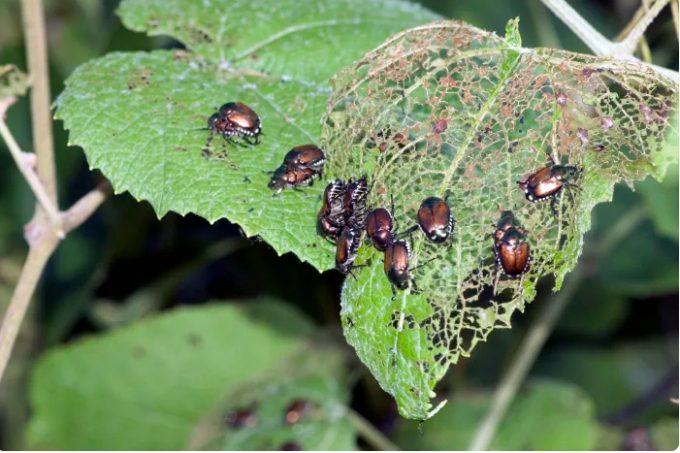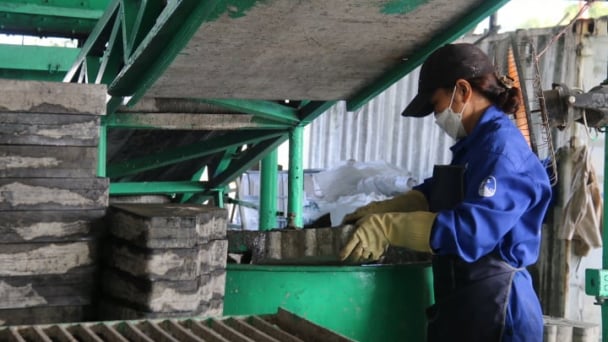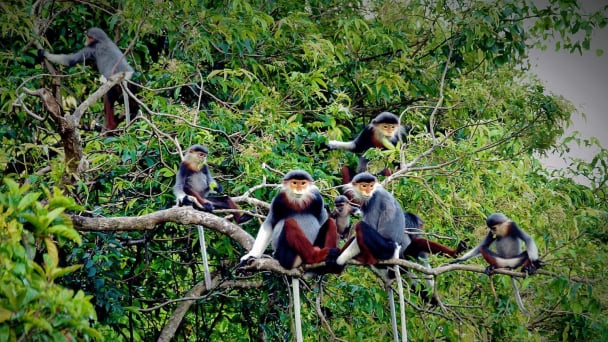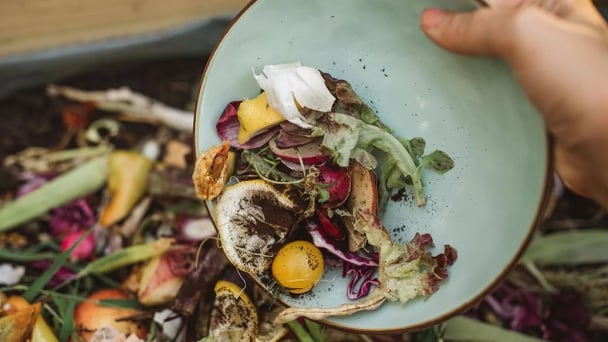May 18, 2025 | 02:48 GMT +7
May 18, 2025 | 02:48 GMT +7
Hotline: 0913.378.918
May 18, 2025 | 02:48 GMT +7
Hotline: 0913.378.918

Japanese beetle eat trees in Illinois. Photo: NYT
The 4-6-week period of intense activity by the gleaming, copper-colored adult Popillia japonica is underway.
These beetles may seem to have it in specifically for your roses, raspberries, crab apples or grapes, but those are just a few of the 300-plus plant species they are known to feed on in North America.
The expert advice might sound counterintuitive: Stop trapping them. (Farewell, beetle bags, despite the marketing promises.) And maybe hold back on watering lawns in the July heat, as female beetles will be seeking a moist spot to lay eggs.
Yes, those are steps toward making peace with this here-to-stay invasive pest, which scientists have sought to subdue since shortly after it was identified in New Jersey in 1916.
Nearly a century later, a 2015 U.S. Department of Agriculture homeowners’ guide to Japanese beetle management put the cost of control in the United States — including the removal and replacement of damaged turf — at $460 million annually. Half of that damage is caused not by the adults, but during the beetles’ larval stage, by the grubs.
Still, this is a troublemaker at both stages of life — and its wide-ranging diet doesn’t hurt its chances, either.
Based on decades of tracking the beetles’ seemingly inexorable march westward in North America, Daniel A. Potter, a professor in the department of entomology at University of Kentucky, described the arc: “The first few decades in a new area, the insect goes crazy and builds to high levels before the population starts to stabilize. Then it goes from a plague to a nuisance.”
For those of us at the nuisance phase, here are some suggestions. But first, some background on the strategies behind the Japanese beetle’s sustained invasion.
(The New York Times)

(VAN) The project contributes to enhancing the resilience of communities vulnerable to the impacts of climate change, with a primary focus on local women.

(VAN) Green materials help save energy and resources. However, after more than 10 years, Vietnam has only developed over 200 green buildings with more than 6 million square meters of floor space.

(VAN) Vietnam - Thailand Business Forum 2025: One plus one on three connects, marking a milestone in the comprehensive strategic partnership between the two nations.

(VAN) The United Nations designated 22 May as the International Day for Biodiversity 2025 with the theme 'Harmony with nature and sustainable development.'
![Multi-channel, multi-directional Vietnamese agricultural markets: [8] A national strategy is needed](https://t.ex-cdn.com/nongnghiepmoitruong.vn/608w/files/phucpm/2025/05/15/1435-thi-truong-nong-san-viet-da-kenh-da-huongbai-8-can-mot-chien-luoc-quoc-gia-084750_728.jpg)
(VAN) The Chairman of Hung Nhon Group shared: ‘Opening up and tapping into new markets is the right and strategic direction for Vietnam's agricultural sector.’

(VAN) Food waste has become a serious issue in modern society, especially in rapidly urbanizing and developing cities like Hanoi.
![Multi-channel, multi-directional Vietnamese agricultural markets: [7] Deep processing makes global reach easy](https://t.ex-cdn.com/nongnghiepmoitruong.vn/608w/files/huytd/2025/05/16/2946-che-bien-sau-chia-khoa-vang-nang-tam-nong-san-viet-tren-ban-do-the-gioi-080603_110-093858.jpg)
(VAN) The application of deep processing technology is helping Vietnamese agricultural products enhance their value, create competitive advantages, and open doors to conquer global consumers.